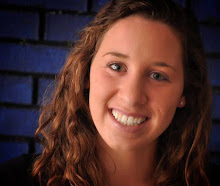Ms. Peifer
English 10 IB, Hr 4
23 February 2009
Macbeth: Act 1
Initially Macbeth comes off as a very conflicted character. He is torn between goodness and power. When he hears of the prophecy, Macbeth thinks, "If good, why do I yield to that suggestion whose horrid image doth unfix my hair... My thought, whose murder yet is but fantastical, shakes so my single state of man" (1.3.47-153). This is showing how his mind immediately jumps to the way to achieve power, through murder, but then regrets it because his conscience kicks in and makes him realize that isn't right. This also shows his potential to be evil since the first thing that comes to his mind is to murder the Thane. Lady Macbeth, on the other hand, is very strong, ambitious, and influential. She has a lot of power over Macbeth and is able to push him to do what she wants through things such as questioning his manhood. She says, "When you durst do it, then you were a man" (1.7.56), implying that if he is not able to murder Duncan he is too cowardly to be a man. She also is very power hungry and creates an entire plan for the murder of Duncan. She tells Macbeth they will frame the guards to "bear the guilt of our great quell" (1.7.81-82). Unlike Macbeth and Lady Macbeth, Banquo is a more innocent character and seems to think things all the way through better. When Macbeth asks him if he wants his children to be kings, Banquo replies, "That, trusted home, might yet enkindle you unto the crown, besides the Thane of Cawdor. But 'tis strange. And oftentimes, to win us to our harm, the instruments of darkness tell us truths, win us with honest trifles, to betray 's in deepest consequence" (1.3.131-137). This is talking about how trying to get this could lead to bad things that one wouldn't want to do and could still get without having to do anything bad. It shows Banquo's intelligence and goodness as opposed to Macbeth's murderous thoughts.
The theme in this act is power and ambition as well as gender roles. This power and ambition is displayed by Macbeth after hearing of the prophecy because his thought immediately go to murder. Lady Macbeth shows that ambition is important when she says, "Though wouldst be great, art not without ambition, but without the illness should attend it" (1.5.18-20). This is saying that to be great one must be ambitious and do so ruthlessly to achieve the goals they are striving for. In this way, she thinks Macbeth should kill Duncan so he will be king and together they will gain more power. The theme of gender roles is more minor but Lady Macbeth portrays an image of men as more violent and women as gentler and more helpless. She says, "Come, you spirits that tend on mortal thoughts, unsex me here, and fill me from the crown to the toe top-full of direst cruelty. Make thick my blood" (1.5.47-50). This is saying that she wishes she were a man so she could kill Duncan herself, but being a woman, she cannot.
In this act there is also some strong imagery. An example is when Lady Macbeth is speaking to Macbeth of his promise to kill Duncan. She tells him, "I have given suck, and know how tender 'tis to love the babe that milks me. I would, while it was smiling in my face, have plucked my nipple from his boneless gums and dashed the brains out, had I so sword as you have done to this" (1.7.61-67). This image stands out so much because of the awful thought of dashing the brains of one's own baby out. It shows how hungry for power Lady Macbeth is and shows her evil side, displaying how she will do whatever it takes to achieve the power she craves.




No comments:
Post a Comment